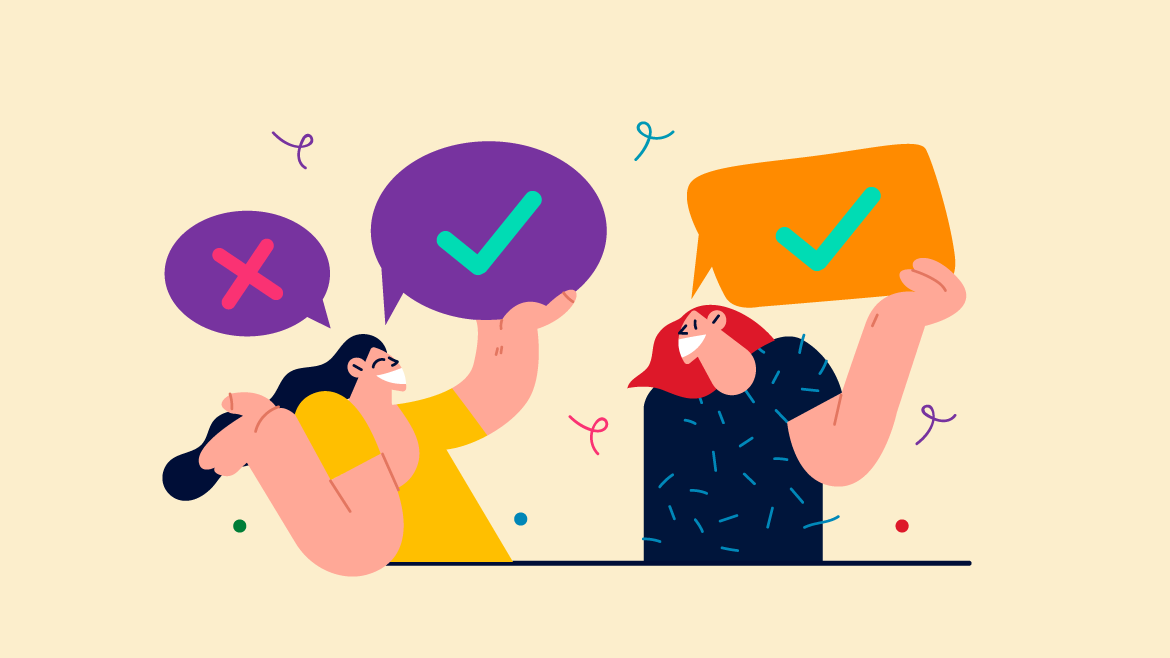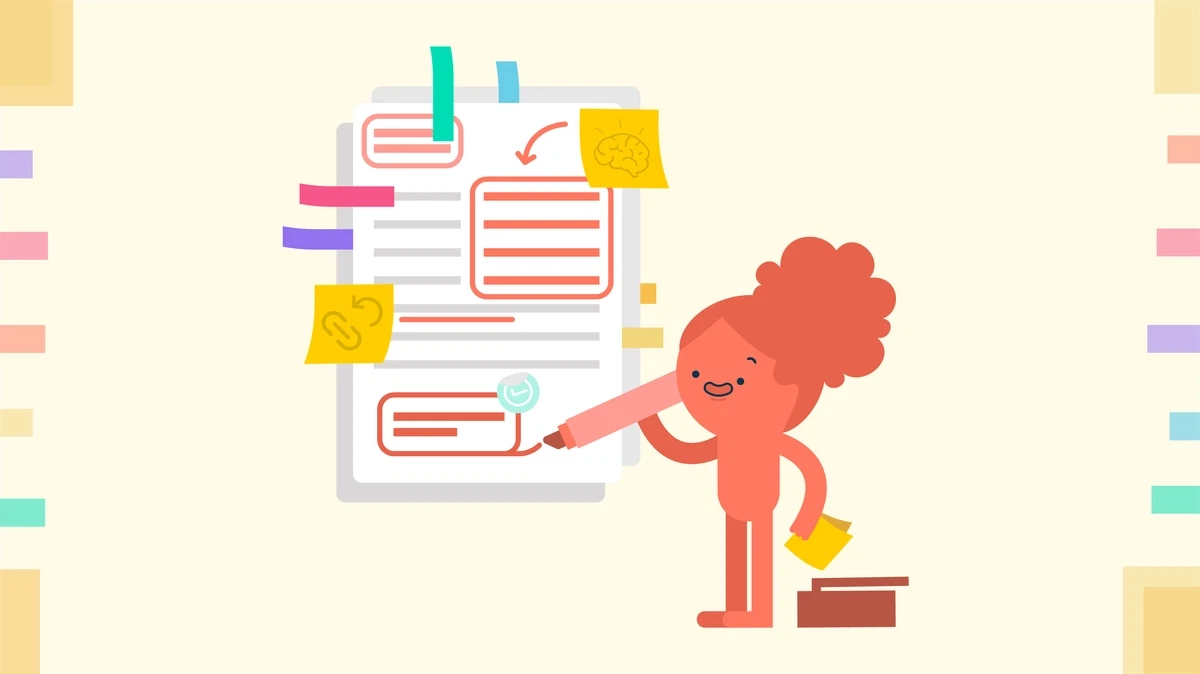Thinking of the Most Difficult Interview Questions?
Interviews are scary. Fact. No matter how great your accomplishments are, you are, once again, exposed to the (very judgemental) eyes of the potential employer, who wants to decide whether you’re a good fit for their company.
I have good and bad news for you. The good news is you’re already there. Your qualifications have convinced them, you’ve survived one of those ghastly automatic CV screenings, and your knowledge base and experience fit the needs of the position. The bad news is that interview questions can be pretty tricky to predict. The bad part of the news has its good and bad sides too. The good? Most of the time, nobody asks you any of those frightful things you’re fretting about. The bad? You’re assuming the worst.
And isn’t all that just a lovely concoction of anxiety, stress, sleepless nights, and obsessive thinking? To alleviate your tension, we’re looking at some of the most difficult interview questions here.
Not-So-Tough-But-Still-Tough Interview Questions and Answers
You can expect to be asked about some of the details of your CV, like old projects, maybe some of your university classes, or any voluntary engagement. For example, they might ask you how you organised a project, what problems you encountered, and how you dealt with them. This is the easy bit because it’s about the experiences and challenges you’ve faced and fought through.
Let’s look at some more dramatic examples:
- Tell me about yourself.
Guess what; this is a trick question! Don’t slide into the whole how-I-met-your-mother narrative – the interviewer doesn’t need your life story. This question sets the scene about your qualifications. Don’t dawdle, jump straight into your achievements, and, in a few minutes, tell your interviewer why YOU are qualified for the job.
- What are your strengths and weaknesses?
This one aims to see how self-aware you are. Nobody expects a perfect person, and saying you are one is unrealistic (and probably annoying). However, you don’t have to admit to your greatest vices. The ideal answer to this is any construction in which you highlight your stronger suits. E.g. ‘I don’t like being criticised’ is easily turned into: ‘I am very careful about whose advice I take. For example, in [insert situation], I got some feedback, which helped me overcome XYZ.’ The key is to show professional growth with each of your weaknesses.
- How do you manage stress on the job?
If you’re easily stressed, you don’t really want to say, ‘Oh goodness, as soon as something goes wrong, I blank lol.’ Instead, form your answer like this: ‘I am fiercely devoted to my projects and take them seriously, which is why I might get stressed out if something goes awry. However, my experience in [insert any prior experience] has taught me to manage stress well.’ See, you admit to being susceptible to stress but deflect it with your coping skills.
- Tell me about a time you failed to do something.
Toughie! No, it’s not meant to embarrass you – it’s meant to help gauge how you handle mistakes. You don’t have to pretend you never make mistakes. Instead, pick a moderate situation and talk about: what happened, what didn’t go according to plan, how you changed the plan/made a new one, and how it all came together. For example, during a student festival, I had a week to organise a theatre play with my workshop. It definitely didn’t work. Instead, we picked a three-minute song sketch to highlight some of the best bits of the week.
- What is your greatest professional accomplishment?
Fire away, but not in a boastful way. The key is, again, to show what you’ve learnt along the way. So, yes, go ahead and share what you’re proud of, but make sure to point out which skills you needed to achieve this. For instance, if you managed a big project, your assets include good teamwork and communication skills, delegation powers, ability to prioritise, and flexibility.
But Why Are You Here? Tough Interview Questions About Purpose
Sometimes your potential employer wants to see how you frame your work ethic. This is when you get those charming questions like:
- Why are you the best fit for us?
I personally hate this one. Unfortunately, you’ll have to familiarise yourself with the company a bit before your interview, so when you answer this one, you have to both compliment and complement them. For instance: ‘I am a great team worker and am good at reading people, which is why I feel particularly strongly about your flat hierarchies and transparency in communication.’ Or, ‘In my previous field, I became well-versed in customer support, which, I believe, would work great with your open attitude to your clients.’
- Where do you see yourself in ten years?
- What do you need to work on/how do you see yourself advancing in the field?
Both of these questions are there to test your planning skills, to check how much orientation and ambition you have, and whether you have specific, clear goals in life. If you don’t know what you want to do in your future, I suggest sitting down and brainstorming. Make a mind map and work out what you want to be because this is not a question you should wing. It’s good to have some long-term goals, and while life can take you in a different direction in the future, where you are at the moment also matters. Additionally, try to frame your answers in ways that indicate your willingness to stay and progress within the company (including team-building, seminars, projects, etc.).

Good preparation and research are crucial when it comes to answering those tough interview questions!
Everyone Loves These Tough Interview Questions About Conflict
Behavioural questions are bound to come up in any serious interview – they are there to gauge your personality and how it would work within the new workplace. Conflict questions can catch you off-guard (and are meant to do that), so you might as well prepare a bit in advance. For the most effective answers, use the STAR method (situation, task, action, result). Describe the problem and what your original task was. Elaborate on what went wrong and how you handled the situation to the best possible result.
- Tell me about a situation where you had to work with a difficult person?
- How did you handle injustice in your previous job?
What would you do if you and your colleagues had opposing ideological positions (e.g. if they were anti-LGBTQ+ rights)?
- Tell me about when you dealt with an unhappy client/manager?
- How do you handle conflicting situations?
None of these questions warrants an answer mentioning your favourite pair of boxing gloves or burying bodies. Instead, you want to show that you are both flexible and tolerant and know when to draw a line. For instance, some people might engage in gaslighting at work, in which case you would want to contact HR and raise the issue.
In case of clear-cut ideological oppositions, you can help your co-worker be better informed about LGBTQ+ rights and alliances. If the problem is more nuanced, state openly that you are open to hearing and discussing various opinions, educating yourself, seeking mentorship and support, and, generally, working on compromises. I’d advise you to comb through your memory and find some conflicting situations from the past, map them out, and, again, figure out what you had learnt from your experience and how it made you better at what you do.
- What did you dislike about your previous job/why did you leave?
I’m listing this under conflict questions because, well, if you leave a job, there are obviously conflicts in values. I’ll be completely honest and say that honesty is not the worst option here. Last year, I had a frightful job experience that left me depressed and burnt out after only two months. In my following interviews, I honestly listed the issues (micromanagement, no boundaries, endless overtime, animosity, and inexplicable salary fluctuations), and no future employer ever had anything against it. In fact, several went on to explain how their company is better. Don’t go for name-calling or aggressive language, but if the situation was bad, it was bad.
The Dreaded Interview Questions for Freshers
If you’re fresh out of college and applying for your first job, you may feel panicky about the questions they’ll ask you. Well, your potential employer will have looked at your CV, so they won’t ask you about your previous work experience, but all the above-listed questions could be applied to school and various internships and apprenticeships. In the meantime, here are a few more questions you can expect:
- What is your ideal job?
Make what you will out of this one, but I suggest peppering your answer with some features your interviewer is offering 😊.
- Are you flexible with working overtime?
Be careful with this one, or you might end up with far more on your plate than you signed up for. It’s fine to jump in here and there, but do point out that a healthy work-life balance is important to you. If that doesn’t sound reasonable to them, you’re dodging a missile there.
- What kind of work environment do you expect to find here?
- What do you know about this company?
- Who do you think our biggest competitors are?
These questions require a bit of research before your interview. Make the most of your time and read through their website, noting important details. As for the work environment, well, that is impossible to predict, but you could list some of your preferences. For what it’s worth, you could ask them on the spot to tell you what working there is like.
- What motivates you to do a good job at work?
Don’t say salary and shut that one down; salary is an expected compensation for your time and skills. Instead, talk about your values, ideals, internal motivation, and how your contribution to the company would benefit others.
The Toughest of Tough Interview Questions and Answers – Examples
- Do you have any questions for us?
Lemme tell you, this can be a tough one. There are some indications that asking a few makes a good impression, so I would advise that you always ask a few questions. It shows your interest in the company and that you’ve put some thought into your application. Some of these questions are a good place to start:
- Can you tell me what a typical day in your company entails?
- What would my duties include?
- What could I do to prepare myself for my role in the company?
- What’s the management style here?
- Why did the previous holder of this position leave? How long had they worked here? (If they’re dodgy about this one, it’s probably a red flag; tread carefully!)
- What qualities do your best employees have?
- Is there anything I can do to improve my qualifications for this position?
Try to ask open-ended questions and take their answers seriously. Remember, job interviews are a two-way process: you get to judge too and decide whether a company is a good fit for you. If you don’t like the attitude of the interviewer, listen to that gut feeling (maybe they are testing you to see how you’d handle a stressful situation, but I find this distasteful). If they are over-selling, it can also indicate one of those places people run away from. Lastly, avoid the whole ‘we are a family’ scam like a plague: in corporate, that means you’ll be working overtime with no compensation and be expected to show up for ‘events’. Don’t do it.
Preparation is Key for Tough Interview Questions
To wrap it up, while many interview questions are not easy to predict, the general intention behind them is. Your future employers use the interview to judge your character, ability to learn, and how driven you are. The best way to prepare is to go through these questions and work out some specific examples highlighting how you overcame difficulties, learnt from your mistakes, accepted feedback and criticism, and achieved your goals.
Finally, if all of this seems a bit contrived, you’re absolutely right! You don’t have to reel off all these answers like a robot (in fact, don’t do that), but a bit of preparation cannot hurt. Especially since it’ll give you a confidence boost and make you more self-assured than just showing up and taking too long to answer simple questions.
So, what makes you the best fit for your next job? What does, indeed? 😉
For a post on how to ace your next job interview, check out Our Top Job Interview Tips to Magic Away Those Nerves!
Frequently Asked Questions (F.A.Qs)
The best way to answer tough interview questions is through the STAR method, where you describe a situation, task, action, and result. To really boost your chances, show what you’ve learnt from that situation and how you could apply that knowledge in the future.
Some typical tricky interview questions include: Why are you a good fit for this company? How do you handle conflict/feedback/criticism? Tell me about a time you failed at work? What is your ideal work environment?
The best way to prepare for a difficult interview is to learn to anticipate the tough questions, work out how you can present a situation related to them, and highlight what you’ve learnt from that situation. Don’t be afraid to show your skills and demonstrate how you deal with problems and stress.
How we ensure our content is accurate and trustworthy?
At StudySmarter, we have created a learning platform that serves millions of students. Meet the people who work hard to deliver fact based content as well as making sure it is verified.

Gabriel Freitas is an AI Engineer with a solid experience in software development, machine learning algorithms, and generative AI, including large language models’ (LLMs) applications. Graduated in Electrical Engineering at the University of São Paulo, he is currently pursuing an MSc in Computer Engineering at the University of Campinas, specializing in machine learning topics. Gabriel has a strong background in software engineering and has worked on projects involving computer vision, embedded AI, and LLM applications.
Get to know Gabriel




